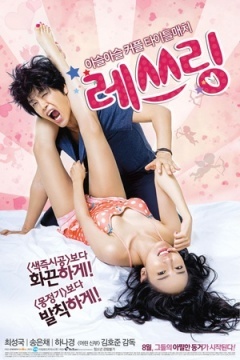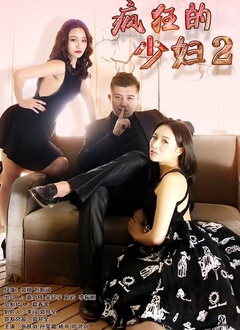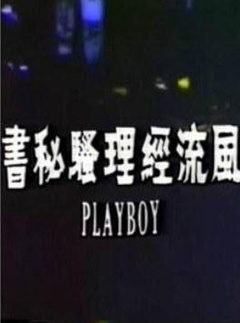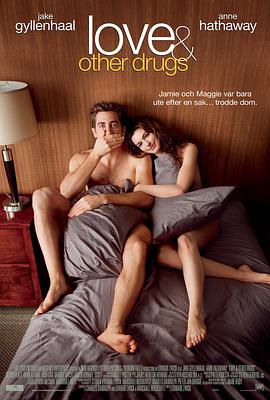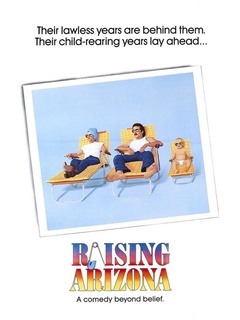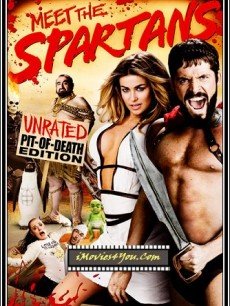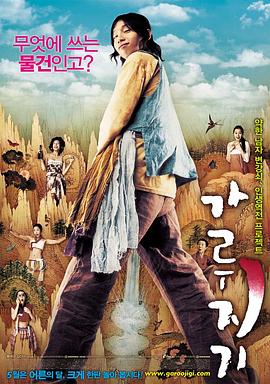- 西瓜云1
- 重演谁的错

重演谁的错
- 主演:
- 丹·福勒,艾玛·贝尔,丹尼·朴迪
- 备注:
- 类型:
- 喜剧片
- 导演:
- 罗伯特·舒瓦兹曼
- 年代:
- 2020
- 地区:
- 美国
- 语言:
- 英语
- 更新:
- 2023-09-18 10:46
- 简介:
- 一对夫妇在他们的鸡尾酒派对上发生了争吵,争吵不断升级,直到宴会突然结束。他们和他们的客人决定一次又一次地重现整个夜晚,以确定谁是对的。...详细
一对夫妇在他们的鸡尾酒派对上发生了争吵,争吵不断升级,直到宴会突然结束。他们和他们的客人决定一次又一次地重现整个夜晚,以确定谁是对的。
原文作者Ebert团队中的Sheila O'Malley。
Any detective interviewing a crowd of witnesses knows that every individual will have a different story about what they saw. Can there even be such a thing as "the truth" when it comes to complicated human interactions? This is the concept of "The Argument," directed by Robert Schwartzman, with screenplay by Zac Stanford. What would happen if a group of people attempted a re-enactment of something they all experienced together? Who said what when? Whose memory is the correct one? There are some very funny bits here, but unfortunately the concept takes too long getting off the ground, leaving the first three-quarters of the movie floating in limbo, waiting for it to all make sense.
【任何侦探如果盘问一组目击者,可能都会发现每个人都会讲一个不同的故事出来。当涉及到复杂的人际互动时,“真相”到底是否存在?这就是“The Argument”这部电影的基本概念,由罗伯特-史沃兹曼导演,Zac Stanford编剧。如果一群人试图重建他们的共同经历,会发生什么?谁在什么时候说了什么?谁的记忆是准确的?电影中有一些非常有趣的片段,但铺垫概念用了太长时间,使电影前3/4的意义不明,等到最后才会发现其中的道理。】
Jack (Dan Fogler) is a struggling screenwriter, with just one credit to his name, a "cerebral" zombie movie called "The Dead Doth Trod the Hills at Night." He has a love-hate relationship with his girlfriend Lisa's burgeoning acting career. Lisa (Emma Bell) just got the role of Mozart's wife Constance in a production called "Wolfgang" and Jack is proud of her success, but jealous of her flirty connection with her co-star Paul (Tyler James Williams). Jack invites his literary agent Brett (Danny Pudi) and Brett's humorless wife Sarah (Maggie Q) over to celebrate the opening of "Wolfgang." It's already awkward because both Maggie and Brett obviously did not care for the show. What's even more awkward is Lisa, unbeknownst to Jack, invited Paul. Paul surprises Lisa by bringing along his giddily ditzy girlfriend Trina (Cleopatra Coleman). Lisa and Paul are hyped up on their success. Jack seethes. Maggie is bored. Brett is irritated. Trina gets wasted. Jack and Lisa are both so upset over how the night went, they invite everyone back the next night, to re-create things and see where it all went wrong.
【杰克是在职业生涯中挣扎的一名编剧,目前为止只有一部名为“The Dead Doth Trod the Hills at Night”的大脑僵尸电影;杰克与女友丽莎有着爱恨交织的一种关系;丽莎的演艺生涯刚刚起步,刚刚接下了名为“沃尔夫冈”的舞台剧中莫扎特妻子Constance这一角色;杰克为丽莎骄傲,但对她和莫扎特男主演保罗之间的轻浮关系非常不满。”沃尔夫冈“首演的这晚,杰克请自己的文学经纪人Brett和他毫无幽默感没有耐心的女友萨拉(Maggie Q)来家里为丽莎庆祝。尴尬的是,Brett和萨拉对”沃尔夫冈“完全没兴趣。更尴尬的是,丽莎背着杰克偷偷请来了保罗和他的只会咯咯傻笑脑子不太够用的女友Trina。丽莎和保罗飘飘然于演出的成功。两人公开调情,杰克气炸了,Maggie Q被无聊到了,而Brett屡屡被激怒,Trina喝醉。杰克和丽莎对这一晚都极为不满意,第二天两人把各自的好友叫了回来,试图重新过一遍当日场景,看看到底哪里出了错。】
Night after night, the group attempts to re-create the original party. The conceit wears itself out almost instantly, since none of the characters seem particularly alive, nor is it clear why any of them are friends. Nothing important is at stake. The concept of "The Argument" doesn't kick in until the film is almost over, when Jack hires actors to come and "play" all of them in a script he has crafted based on the original night. All of the actors think this is a legitimate audition for a real project. They all take it very seriously. During the first read-through, they take on independent lives of their own, bringing eccentric interpretations to all we have just seen. This section is very clever and legitimately funny (I laughed out loud a couple of times). As the hired actors (Karan Brar, Charlotte McKinney, Nathan Stewart-Jarrett, Marielle Scott and Mark Ryder) read the script, the originals sit there and watch, arguing loudly with Jack's interpretation, or mocking Jack for his clearly biased spin. (Jack casts a hunk to play himself, for example.) This section sparks with controlled chaos. The movie goes off the rails, in the best sense. At one point, the actor playing Jack stops the scene and asks the real Jack, "I'm a little unclear. Is my character an idiot?" When Jack makes the fictional Paul declare, "What I care about most in my life are my abs and my glutes," the real Paul flips out at this mischaracterization.
【夜复一夜,这一群人不断重复那一晚的情境。虚荣心几乎是立刻就显露出来,每个人都不是十分敏感,也不是很清楚为什么彼此会成为朋友。没有什么危在旦夕,感情不会破裂。”The Argument“这个词直到电影快要结束时才出现,杰克自己把最初那晚的情景转化成文本,并请来几个演员分别扮演自己和这群朋友。演员们以为这是为一个真正的项目进行的试演,都非常严肃地对待试读,他们把各自的生命体验代入,对观众刚才所看到的一切进行了古怪有趣的解读。这一部分相当聪明活泼(我自己笑了几次)。雇来的演员们读剧本时,原型们坐在一旁观看,同时大声评价杰克的解读,嘲笑他跑偏的地方,比如请了个英俊的大块头(Mark Ryder)演他自己。这一部分火花四射,混乱又有序。剧情逐渐脱轨(往好的方面),有一次,演员杰克问真杰克,”我有点不明白,我这个角色是个笨蛋吗?“而当真杰克让演员保罗声明,”我生命中唯一关心是,是我的腹肌和臀大肌“时,真保罗勃然大怒。】
The reality in the fake play is more real than the "reality" of the movie we just saw. Or something like that. Being this high-concept, this surreal, is difficult. You have to lay the ground rules early, to get the audience on the same page, to say: "This is what we will explore here." One thinks of something like "Living in Oblivion," an extended satire and lampoon of the challenges of independent filmmaking. The whole film is an exaggeration, but it's exaggeration in service of extremely targeted points and observations. This is what is not present in "The Argument." What is also not present is perhaps the most obvious: the existential or esoteric "Rashomon"-style questions about truth. "Then why? Why are we here?" says one of the "characters" in Jack's play. It's a good question, and one "The Argument" doesn't really answer. The final sequence of "The Argument" is very funny, but it's too little too late.
【剧中剧似乎比剧更加真实可信。这种高概念和这种超现实非常难以达成。必须在早先立下基本规则,让观众们与创作者达成共识,然后再告诉观众:”我们要研究研究这里。“有点像1995年的喜剧电影《开麦拉狂想曲》(Living in Oblivion),对独立制片电影所面临挑战的深度挖苦和讽刺。整部电影都在夸张,而这种夸张服务于清楚的目标和观察对象。这在本片中没有表现出来。另外没有表现出来的还有存在主义的,或是类似罗生门的,关于真相的深奥问题。如同杰克的戏剧里一个演员问道,”那么为什么?为什么我们会在这里?“这是一个非常不错的问题,本片没有回答。电影的最后这部分非常有意思,可惜来得太晚,内容占比又太少。】
这部电影在我自己心目中是3~4分之间。
确实是有点蠢,但却是蠢萌蠢萌的。其实我们自己和伴侣吵完架也经常在脑海里复盘,绝大多数时候是不会认识到自己的错误,经常性放大对方的缺点,而且不只一次会想到”这句话好为什么当时不这么说“,尽管那句话大概率伤害性极大。如果像电影里让别人重复自己当时的言行,可能就会看出自己的愚蠢和自以为是来。比如丽莎看到卖弄风情的角色丽莎,才会意识到自己与保罗的举止在杰克等人眼里是那样轻浮吧。我倒是觉得丽莎和保罗之间可能真的没什么,如果真的有事情发生过,反而会装成若无其事的样子。作为演员会掩饰得天衣无缝。
与上面影评里不一样,我看这部电影时大笑了好多次,不仅仅是最后一部分演员们带来自己的诠释,他们自己复盘时也是差错百出,每个人的记忆都保留对自己有利的部分。挺讽刺的。
导演Rober Schwartzman的中间名更如雷贯耳一些,是《教父》三部曲导演科波拉的外甥。这部”The Argument“中,有他之前作品《梦乡》和《独角兽》的海报。墙上的海报是The Unicorn
右侧是Dreamland的海报
虚构的电影作品”The Dead Doth Trod the Hills at Night“也有海报。
Maggie Q的角色看上去冷冷的酷酷的,也有很多搞笑的地方,尽管她有影像记忆(photographic memory),但因为对”沃尔夫冈“不良印象在先,心里有了成见,某些回忆就如同戴了有色眼镜一般。对语言包括肢体语言、酒和食物等细节的精准更显讽刺。对不相关物品的在意似乎多于对人的关心。
当尼基塔遇上Abed,居然很有喜剧效果。"<>"" && "
原文作者Ebert团队中的Sheila O'Malley。
Any detective interviewing a crowd of witnesses knows that every individual will have a different story about what they saw. Can there even be such a thing as "the truth" when it comes to complicated human interactions? This is the concept of "The Argument," directed by Robert Schwartzman, with screenplay by Zac Stanford. What would happen if a group of people attempted a re-enactment of something they all experienced together? Who said what when? Whose memory is the correct one? There are some very funny bits here, but unfortunately the concept takes too long getting off the ground, leaving the first three-quarters of the movie floating in limbo, waiting for it to all make sense.
【任何侦探如果盘问一组目击者,可能都会发现每个人都会讲一个不同的故事出来。当涉及到复杂的人际互动时,“真相”到底是否存在?这就是“The Argument”这部电影的基本概念,由罗伯特-史沃兹曼导演,Zac Stanford编剧。如果一群人试图重建他们的共同经历,会发生什么?谁在什么时候说了什么?谁的记忆是准确的?电影中有一些非常有趣的片段,但铺垫概念用了太长时间,使电影前3/4的意义不明,等到最后才会发现其中的道理。】
Jack (Dan Fogler) is a struggling screenwriter, with just one credit to his name, a "cerebral" zombie movie called "The Dead Doth Trod the Hills at Night." He has a love-hate relationship with his girlfriend Lisa's burgeoning acting career. Lisa (Emma Bell) just got the role of Mozart's wife Constance in a production called "Wolfgang" and Jack is proud of her success, but jealous of her flirty connection with her co-star Paul (Tyler James Williams). Jack invites his literary agent Brett (Danny Pudi) and Brett's humorless wife Sarah (Maggie Q) over to celebrate the opening of "Wolfgang." It's already awkward because both Maggie and Brett obviously did not care for the show. What's even more awkward is Lisa, unbeknownst to Jack, invited Paul. Paul surprises Lisa by bringing along his giddily ditzy girlfriend Trina (Cleopatra Coleman). Lisa and Paul are hyped up on their success. Jack seethes. Maggie is bored. Brett is irritated. Trina gets wasted. Jack and Lisa are both so upset over how the night went, they invite everyone back the next night, to re-create things and see where it all went wrong.
【杰克是在职业生涯中挣扎的一名编剧,目前为止只有一部名为“The Dead Doth Trod the Hills at Night”的大脑僵尸电影;杰克与女友丽莎有着爱恨交织的一种关系;丽莎的演艺生涯刚刚起步,刚刚接下了名为“沃尔夫冈”的舞台剧中莫扎特妻子Constance这一角色;杰克为丽莎骄傲,但对她和莫扎特男主演保罗之间的轻浮关系非常不满。”沃尔夫冈“首演的这晚,杰克请自己的文学经纪人Brett和他毫无幽默感没有耐心的女友萨拉(Maggie Q)来家里为丽莎庆祝。尴尬的是,Brett和萨拉对”沃尔夫冈“完全没兴趣。更尴尬的是,丽莎背着杰克偷偷请来了保罗和他的只会咯咯傻笑脑子不太够用的女友Trina。丽莎和保罗飘飘然于演出的成功。两人公开调情,杰克气炸了,Maggie Q被无聊到了,而Brett屡屡被激怒,Trina喝醉。杰克和丽莎对这一晚都极为不满意,第二天两人把各自的好友叫了回来,试图重新过一遍当日场景,看看到底哪里出了错。】
Night after night, the group attempts to re-create the original party. The conceit wears itself out almost instantly, since none of the characters seem particularly alive, nor is it clear why any of them are friends. Nothing important is at stake. The concept of "The Argument" doesn't kick in until the film is almost over, when Jack hires actors to come and "play" all of them in a script he has crafted based on the original night. All of the actors think this is a legitimate audition for a real project. They all take it very seriously. During the first read-through, they take on independent lives of their own, bringing eccentric interpretations to all we have just seen. This section is very clever and legitimately funny (I laughed out loud a couple of times). As the hired actors (Karan Brar, Charlotte McKinney, Nathan Stewart-Jarrett, Marielle Scott and Mark Ryder) read the script, the originals sit there and watch, arguing loudly with Jack's interpretation, or mocking Jack for his clearly biased spin. (Jack casts a hunk to play himself, for example.) This section sparks with controlled chaos. The movie goes off the rails, in the best sense. At one point, the actor playing Jack stops the scene and asks the real Jack, "I'm a little unclear. Is my character an idiot?" When Jack makes the fictional Paul declare, "What I care about most in my life are my abs and my glutes," the real Paul flips out at this mischaracterization.
【夜复一夜,这一群人不断重复那一晚的情境。虚荣心几乎是立刻就显露出来,每个人都不是十分敏感,也不是很清楚为什么彼此会成为朋友。没有什么危在旦夕,感情不会破裂。”The Argument“这个词直到电影快要结束时才出现,杰克自己把最初那晚的情景转化成文本,并请来几个演员分别扮演自己和这群朋友。演员们以为这是为一个真正的项目进行的试演,都非常严肃地对待试读,他们把各自的生命体验代入,对观众刚才所看到的一切进行了古怪有趣的解读。这一部分相当聪明活泼(我自己笑了几次)。雇来的演员们读剧本时,原型们坐在一旁观看,同时大声评价杰克的解读,嘲笑他跑偏的地方,比如请了个英俊的大块头(Mark Ryder)演他自己。这一部分火花四射,混乱又有序。剧情逐渐脱轨(往好的方面),有一次,演员杰克问真杰克,”我有点不明白,我这个角色是个笨蛋吗?“而当真杰克让演员保罗声明,”我生命中唯一关心是,是我的腹肌和臀大肌“时,真保罗勃然大怒。】
The reality in the fake play is more real than the "reality" of the movie we just saw. Or something like that. Being this high-concept, this surreal, is difficult. You have to lay the ground rules early, to get the audience on the same page, to say: "This is what we will explore here." One thinks of something like "Living in Oblivion," an extended satire and lampoon of the challenges of independent filmmaking. The whole film is an exaggeration, but it's exaggeration in service of extremely targeted points and observations. This is what is not present in "The Argument." What is also not present is perhaps the most obvious: the existential or esoteric "Rashomon"-style questions about truth. "Then why? Why are we here?" says one of the "characters" in Jack's play. It's a good question, and one "The Argument" doesn't really answer. The final sequence of "The Argument" is very funny, but it's too little too late.
【剧中剧似乎比剧更加真实可信。这种高概念和这种超现实非常难以达成。必须在早先立下基本规则,让观众们与创作者达成共识,然后再告诉观众:”我们要研究研究这里。“有点像1995年的喜剧电影《开麦拉狂想曲》(Living in Oblivion),对独立制片电影所面临挑战的深度挖苦和讽刺。整部电影都在夸张,而这种夸张服务于清楚的目标和观察对象。这在本片中没有表现出来。另外没有表现出来的还有存在主义的,或是类似罗生门的,关于真相的深奥问题。如同杰克的戏剧里一个演员问道,”那么为什么?为什么我们会在这里?“这是一个非常不错的问题,本片没有回答。电影的最后这部分非常有意思,可惜来得太晚,内容占比又太少。】
这部电影在我自己心目中是3~4分之间。
确实是有点蠢,但却是蠢萌蠢萌的。其实我们自己和伴侣吵完架也经常在脑海里复盘,绝大多数时候是不会认识到自己的错误,经常性放大对方的缺点,而且不只一次会想到”这句话好为什么当时不这么说“,尽管那句话大概率伤害性极大。如果像电影里让别人重复自己当时的言行,可能就会看出自己的愚蠢和自以为是来。比如丽莎看到卖弄风情的角色丽莎,才会意识到自己与保罗的举止在杰克等人眼里是那样轻浮吧。我倒是觉得丽莎和保罗之间可能真的没什么,如果真的有事情发生过,反而会装成若无其事的样子。作为演员会掩饰得天衣无缝。
与上面影评里不一样,我看这部电影时大笑了好多次,不仅仅是最后一部分演员们带来自己的诠释,他们自己复盘时也是差错百出,每个人的记忆都保留对自己有利的部分。挺讽刺的。
导演Rober Schwartzman的中间名更如雷贯耳一些,是《教父》三部曲导演科波拉的外甥。这部”The Argument“中,有他之前作品《梦乡》和《独角兽》的海报。墙上的海报是The Unicorn
右侧是Dreamland的海报
虚构的电影作品”The Dead Doth Trod the Hills at Night“也有海报。
Maggie Q的角色看上去冷冷的酷酷的,也有很多搞笑的地方,尽管她有影像记忆(photographic memory),但因为对”沃尔夫冈“不良印象在先,心里有了成见,某些回忆就如同戴了有色眼镜一般。对语言包括肢体语言、酒和食物等细节的精准更显讽刺。对不相关物品的在意似乎多于对人的关心。
当尼基塔遇上Abed,居然很有喜剧效果。"<>"暂时没有网友评论该影片"}
原文作者Ebert团队中的Sheila O'Malley。
Any detective interviewing a crowd of witnesses knows that every individual will have a different story about what they saw. Can there even be such a thing as "the truth" when it comes to complicated human interactions? This is the concept of "The Argument," directed by Robert Schwartzman, with screenplay by Zac Stanford. What would happen if a group of people attempted a re-enactment of something they all experienced together? Who said what when? Whose memory is the correct one? There are some very funny bits here, but unfortunately the concept takes too long getting off the ground, leaving the first three-quarters of the movie floating in limbo, waiting for it to all make sense.
【任何侦探如果盘问一组目击者,可能都会发现每个人都会讲一个不同的故事出来。当涉及到复杂的人际互动时,“真相”到底是否存在?这就是“The Argument”这部电影的基本概念,由罗伯特-史沃兹曼导演,Zac Stanford编剧。如果一群人试图重建他们的共同经历,会发生什么?谁在什么时候说了什么?谁的记忆是准确的?电影中有一些非常有趣的片段,但铺垫概念用了太长时间,使电影前3/4的意义不明,等到最后才会发现其中的道理。】
Jack (Dan Fogler) is a struggling screenwriter, with just one credit to his name, a "cerebral" zombie movie called "The Dead Doth Trod the Hills at Night." He has a love-hate relationship with his girlfriend Lisa's burgeoning acting career. Lisa (Emma Bell) just got the role of Mozart's wife Constance in a production called "Wolfgang" and Jack is proud of her success, but jealous of her flirty connection with her co-star Paul (Tyler James Williams). Jack invites his literary agent Brett (Danny Pudi) and Brett's humorless wife Sarah (Maggie Q) over to celebrate the opening of "Wolfgang." It's already awkward because both Maggie and Brett obviously did not care for the show. What's even more awkward is Lisa, unbeknownst to Jack, invited Paul. Paul surprises Lisa by bringing along his giddily ditzy girlfriend Trina (Cleopatra Coleman). Lisa and Paul are hyped up on their success. Jack seethes. Maggie is bored. Brett is irritated. Trina gets wasted. Jack and Lisa are both so upset over how the night went, they invite everyone back the next night, to re-create things and see where it all went wrong.
【杰克是在职业生涯中挣扎的一名编剧,目前为止只有一部名为“The Dead Doth Trod the Hills at Night”的大脑僵尸电影;杰克与女友丽莎有着爱恨交织的一种关系;丽莎的演艺生涯刚刚起步,刚刚接下了名为“沃尔夫冈”的舞台剧中莫扎特妻子Constance这一角色;杰克为丽莎骄傲,但对她和莫扎特男主演保罗之间的轻浮关系非常不满。”沃尔夫冈“首演的这晚,杰克请自己的文学经纪人Brett和他毫无幽默感没有耐心的女友萨拉(Maggie Q)来家里为丽莎庆祝。尴尬的是,Brett和萨拉对”沃尔夫冈“完全没兴趣。更尴尬的是,丽莎背着杰克偷偷请来了保罗和他的只会咯咯傻笑脑子不太够用的女友Trina。丽莎和保罗飘飘然于演出的成功。两人公开调情,杰克气炸了,Maggie Q被无聊到了,而Brett屡屡被激怒,Trina喝醉。杰克和丽莎对这一晚都极为不满意,第二天两人把各自的好友叫了回来,试图重新过一遍当日场景,看看到底哪里出了错。】
Night after night, the group attempts to re-create the original party. The conceit wears itself out almost instantly, since none of the characters seem particularly alive, nor is it clear why any of them are friends. Nothing important is at stake. The concept of "The Argument" doesn't kick in until the film is almost over, when Jack hires actors to come and "play" all of them in a script he has crafted based on the original night. All of the actors think this is a legitimate audition for a real project. They all take it very seriously. During the first read-through, they take on independent lives of their own, bringing eccentric interpretations to all we have just seen. This section is very clever and legitimately funny (I laughed out loud a couple of times). As the hired actors (Karan Brar, Charlotte McKinney, Nathan Stewart-Jarrett, Marielle Scott and Mark Ryder) read the script, the originals sit there and watch, arguing loudly with Jack's interpretation, or mocking Jack for his clearly biased spin. (Jack casts a hunk to play himself, for example.) This section sparks with controlled chaos. The movie goes off the rails, in the best sense. At one point, the actor playing Jack stops the scene and asks the real Jack, "I'm a little unclear. Is my character an idiot?" When Jack makes the fictional Paul declare, "What I care about most in my life are my abs and my glutes," the real Paul flips out at this mischaracterization.
【夜复一夜,这一群人不断重复那一晚的情境。虚荣心几乎是立刻就显露出来,每个人都不是十分敏感,也不是很清楚为什么彼此会成为朋友。没有什么危在旦夕,感情不会破裂。”The Argument“这个词直到电影快要结束时才出现,杰克自己把最初那晚的情景转化成文本,并请来几个演员分别扮演自己和这群朋友。演员们以为这是为一个真正的项目进行的试演,都非常严肃地对待试读,他们把各自的生命体验代入,对观众刚才所看到的一切进行了古怪有趣的解读。这一部分相当聪明活泼(我自己笑了几次)。雇来的演员们读剧本时,原型们坐在一旁观看,同时大声评价杰克的解读,嘲笑他跑偏的地方,比如请了个英俊的大块头(Mark Ryder)演他自己。这一部分火花四射,混乱又有序。剧情逐渐脱轨(往好的方面),有一次,演员杰克问真杰克,”我有点不明白,我这个角色是个笨蛋吗?“而当真杰克让演员保罗声明,”我生命中唯一关心是,是我的腹肌和臀大肌“时,真保罗勃然大怒。】
The reality in the fake play is more real than the "reality" of the movie we just saw. Or something like that. Being this high-concept, this surreal, is difficult. You have to lay the ground rules early, to get the audience on the same page, to say: "This is what we will explore here." One thinks of something like "Living in Oblivion," an extended satire and lampoon of the challenges of independent filmmaking. The whole film is an exaggeration, but it's exaggeration in service of extremely targeted points and observations. This is what is not present in "The Argument." What is also not present is perhaps the most obvious: the existential or esoteric "Rashomon"-style questions about truth. "Then why? Why are we here?" says one of the "characters" in Jack's play. It's a good question, and one "The Argument" doesn't really answer. The final sequence of "The Argument" is very funny, but it's too little too late.
【剧中剧似乎比剧更加真实可信。这种高概念和这种超现实非常难以达成。必须在早先立下基本规则,让观众们与创作者达成共识,然后再告诉观众:”我们要研究研究这里。“有点像1995年的喜剧电影《开麦拉狂想曲》(Living in Oblivion),对独立制片电影所面临挑战的深度挖苦和讽刺。整部电影都在夸张,而这种夸张服务于清楚的目标和观察对象。这在本片中没有表现出来。另外没有表现出来的还有存在主义的,或是类似罗生门的,关于真相的深奥问题。如同杰克的戏剧里一个演员问道,”那么为什么?为什么我们会在这里?“这是一个非常不错的问题,本片没有回答。电影的最后这部分非常有意思,可惜来得太晚,内容占比又太少。】
这部电影在我自己心目中是3~4分之间。
确实是有点蠢,但却是蠢萌蠢萌的。其实我们自己和伴侣吵完架也经常在脑海里复盘,绝大多数时候是不会认识到自己的错误,经常性放大对方的缺点,而且不只一次会想到”这句话好为什么当时不这么说“,尽管那句话大概率伤害性极大。如果像电影里让别人重复自己当时的言行,可能就会看出自己的愚蠢和自以为是来。比如丽莎看到卖弄风情的角色丽莎,才会意识到自己与保罗的举止在杰克等人眼里是那样轻浮吧。我倒是觉得丽莎和保罗之间可能真的没什么,如果真的有事情发生过,反而会装成若无其事的样子。作为演员会掩饰得天衣无缝。
与上面影评里不一样,我看这部电影时大笑了好多次,不仅仅是最后一部分演员们带来自己的诠释,他们自己复盘时也是差错百出,每个人的记忆都保留对自己有利的部分。挺讽刺的。
导演Rober Schwartzman的中间名更如雷贯耳一些,是《教父》三部曲导演科波拉的外甥。这部”The Argument“中,有他之前作品《梦乡》和《独角兽》的海报。墙上的海报是The Unicorn
右侧是Dreamland的海报
虚构的电影作品”The Dead Doth Trod the Hills at Night“也有海报。
Maggie Q的角色看上去冷冷的酷酷的,也有很多搞笑的地方,尽管她有影像记忆(photographic memory),但因为对”沃尔夫冈“不良印象在先,心里有了成见,某些回忆就如同戴了有色眼镜一般。对语言包括肢体语言、酒和食物等细节的精准更显讽刺。对不相关物品的在意似乎多于对人的关心。
当尼基塔遇上Abed,居然很有喜剧效果。

